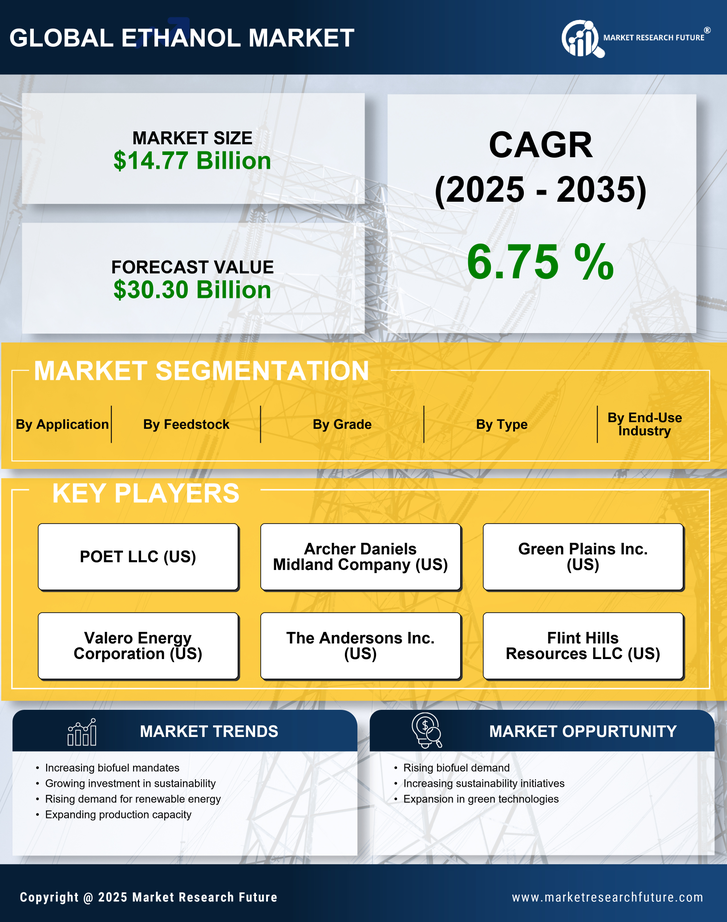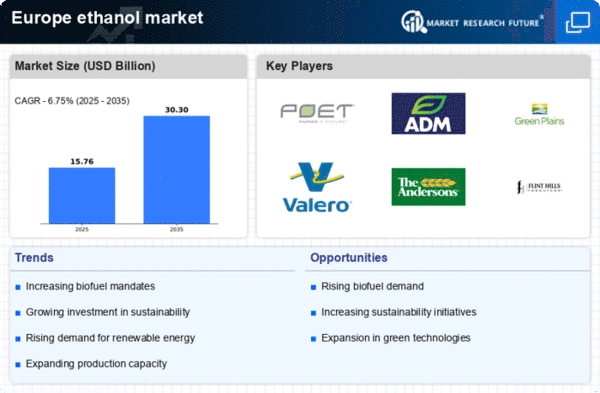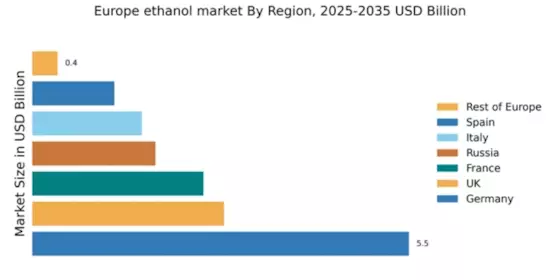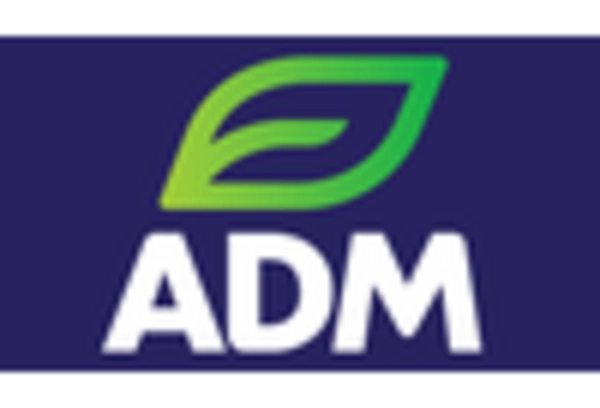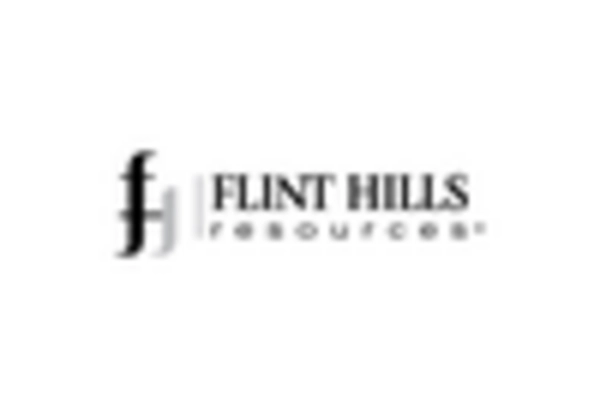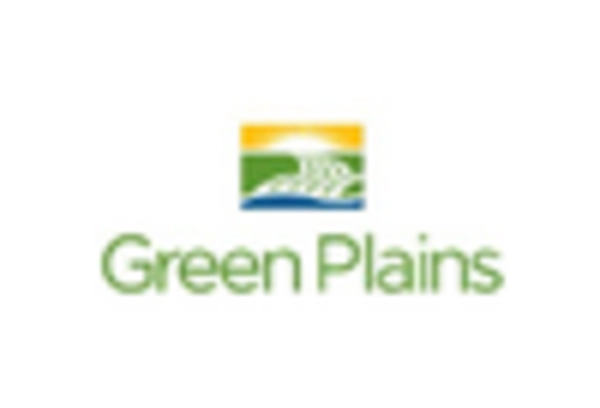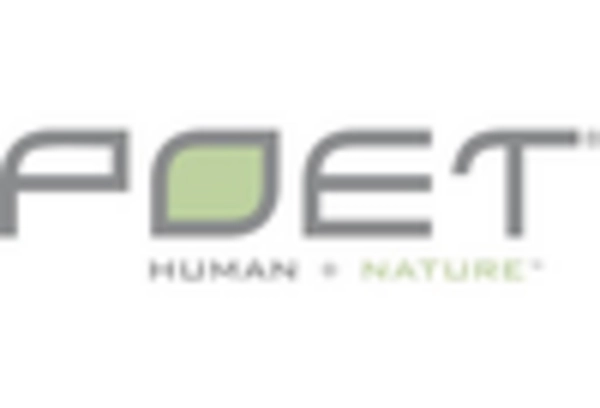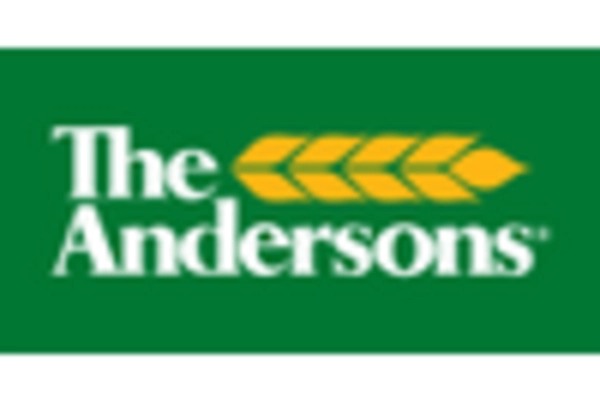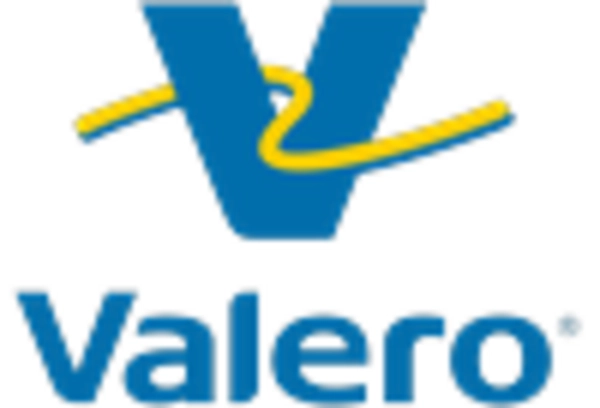Rising Fuel Prices
The volatility of fossil fuel prices is a significant driver for the ethanol market in Europe. As crude oil prices fluctuate, consumers and businesses are increasingly seeking alternative fuel sources to mitigate costs. Ethanol, being a renewable fuel, presents a viable option that can help stabilize fuel expenses. In recent years, the price of gasoline has seen considerable increases, prompting a shift in consumer behavior towards more sustainable and cost-effective alternatives. This trend is likely to bolster the ethanol market, as consumers become more inclined to adopt ethanol-blended fuels. Additionally, the potential for ethanol to be produced locally can further reduce dependency on imported fossil fuels, enhancing energy security. Consequently, the rising fuel prices may catalyze a more pronounced transition towards ethanol, fostering growth within the market.
Increased Environmental Awareness
The growing consciousness regarding environmental issues among consumers and policymakers is driving the ethanol market in Europe. As climate change concerns escalate, there is a notable shift towards renewable energy sources, including biofuels like ethanol. This trend is reflected in the European Union's commitment to reducing greenhouse gas emissions by at least 55% by 2030. Consequently, the ethanol market is likely to benefit from increased investments in sustainable fuel production. Furthermore, public support for cleaner energy alternatives is expected to enhance the demand for ethanol, as it is perceived as a more environmentally friendly option compared to fossil fuels. This heightened awareness may lead to a more robust regulatory framework that favors the growth of the ethanol market, potentially resulting in a significant increase in market share within the broader energy sector.
Government Incentives and Subsidies
Government incentives and subsidies play a crucial role in shaping the ethanol market in Europe. Various European nations have implemented financial support mechanisms to promote the production and consumption of biofuels. For instance, the European Commission has established policies that provide financial assistance to farmers and producers engaged in ethanol production. These incentives can take the form of direct subsidies, tax breaks, or grants, which lower production costs and encourage investment in the ethanol market. As a result, the market is likely to experience growth, with projections indicating that the demand for ethanol could increase by approximately 20% over the next five years. Such government support not only stimulates production but also enhances the competitiveness of ethanol against traditional fossil fuels, thereby fostering a more sustainable energy landscape.
Technological Innovations in Production
Technological advancements in the production of ethanol are significantly influencing the ethanol market in Europe. Innovations such as improved fermentation processes and the development of second-generation biofuels are enhancing the efficiency and sustainability of ethanol production. For example, the introduction of advanced enzymatic processes has been shown to increase yield rates, thereby reducing the overall cost of production. This is particularly relevant as the ethanol market seeks to compete with fossil fuels on price and efficiency. Moreover, the integration of biotechnology in the production process is expected to lead to a more sustainable supply chain, which aligns with the European Union's goals for a greener economy. As these technologies continue to evolve, they may contribute to a more robust and competitive ethanol market, potentially increasing its share in the renewable energy sector.
Consumer Preference for Renewable Energy
The shift in consumer preferences towards renewable energy sources is a pivotal factor influencing the ethanol market in Europe. As awareness of climate change and environmental sustainability grows, consumers are increasingly favoring products that align with their values. This trend is evident in the automotive sector, where there is a rising demand for vehicles that can run on biofuels, including ethanol. The ethanol market is likely to benefit from this shift, as manufacturers respond to consumer demands by producing more flexible fuel options. Furthermore, the European Union's commitment to achieving carbon neutrality by 2050 is expected to further drive consumer interest in renewable energy solutions. As consumers prioritize sustainability, the ethanol market may experience a surge in demand, leading to increased production and investment in the sector.
